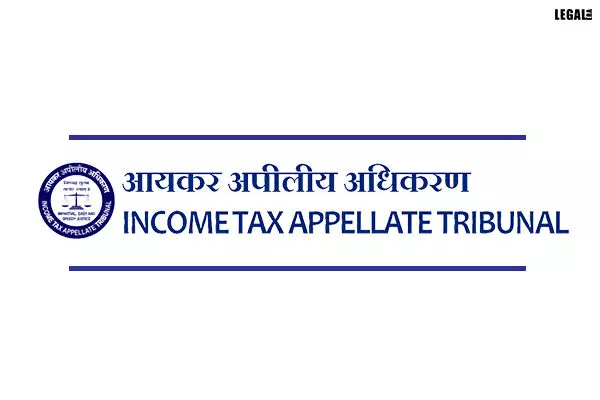- Home
- News
- Articles+
- Aerospace
- AI
- Agriculture
- Alternate Dispute Resolution
- Arbitration & Mediation
- Banking and Finance
- Bankruptcy
- Book Review
- Bribery & Corruption
- Commercial Litigation
- Competition Law
- Conference Reports
- Consumer Products
- Contract
- Corporate Governance
- Corporate Law
- Covid-19
- Cryptocurrency
- Cybersecurity
- Data Protection
- Defence
- Digital Economy
- E-commerce
- Employment Law
- Energy and Natural Resources
- Entertainment and Sports Law
- Environmental Law
- ESG
- FDI
- Food and Beverage
- Gaming
- Health Care
- IBC Diaries
- In Focus
- Inclusion & Diversity
- Insurance Law
- Intellectual Property
- International Law
- IP & Tech Era
- Know the Law
- Labour Laws
- Law & Policy and Regulation
- Litigation
- Litigation Funding
- Manufacturing
- Mergers & Acquisitions
- NFTs
- Privacy
- Private Equity
- Project Finance
- Real Estate
- Risk and Compliance
- Student Corner
- Take On Board
- Tax
- Technology Media and Telecom
- Tributes
- Viewpoint
- Zoom In
- Law Firms
- In-House
- Rankings
- E-Magazine
- Legal Era TV
- Events
- News
- Articles
- Aerospace
- AI
- Agriculture
- Alternate Dispute Resolution
- Arbitration & Mediation
- Banking and Finance
- Bankruptcy
- Book Review
- Bribery & Corruption
- Commercial Litigation
- Competition Law
- Conference Reports
- Consumer Products
- Contract
- Corporate Governance
- Corporate Law
- Covid-19
- Cryptocurrency
- Cybersecurity
- Data Protection
- Defence
- Digital Economy
- E-commerce
- Employment Law
- Energy and Natural Resources
- Entertainment and Sports Law
- Environmental Law
- ESG
- FDI
- Food and Beverage
- Gaming
- Health Care
- IBC Diaries
- In Focus
- Inclusion & Diversity
- Insurance Law
- Intellectual Property
- International Law
- IP & Tech Era
- Know the Law
- Labour Laws
- Law & Policy and Regulation
- Litigation
- Litigation Funding
- Manufacturing
- Mergers & Acquisitions
- NFTs
- Privacy
- Private Equity
- Project Finance
- Real Estate
- Risk and Compliance
- Student Corner
- Take On Board
- Tax
- Technology Media and Telecom
- Tributes
- Viewpoint
- Zoom In
- Law Firms
- In-House
- Rankings
- E-Magazine
- Legal Era TV
- Events
ITAT rejects trust's claim to be taxed in individual capacity

ITAT rejects trust's claim to be taxed in individual capacity
The assessee erred in filing its Income Tax Return on Form 5 instead of Form 7
The Kolkata bench of the Income Tax Appellate Tribunal (ITAT) has held that the claim of the assessee to be taxed individually is not sustainable in the absence of evidence that it is a private beneficiary trust.
The assessee, Ramgopal Thirani, a trust, had filed an Income Tax Return (ITR) declaring an income of Rs.1,57,340. It challenged the August 2021 order of the Commissioner of Income Tax (Appeals) passed under the Income Tax Act, 1961.
The Centralized Processing Center (CPC) assessed the income but charged a tax thereon by treating the assessee as a charitable trust.
The assessee claimed it was a private beneficiary trust and was required to file its return on Form-5. However, inadvertently, it filed on Form-7, which was meant for charitable trusts claiming tax exemption.
Further, the assessee contended that it tried to file a revised return but failed to do so. Also, the rectification application filed thereafter did not bring any relief.
It pleaded that it had a determinate percentage of share and was liable to be taxed in the manner of an individual. It stated that since the trust's income was less than the prescribed limit of income (not chargeable to tax as in the case of an individual), no tax was payable.
The bench comprising Rajpal Yadav (vice president) and Manish Borad (accountant member) observed that the assessee failed to file any evidence to establish that it was a private beneficiary trust with a determinate percentage of share.
The tribunal, while remanding the matter, restored the issues raised in the appeal for fresh adjudication by CIT(A). It provided the liberty to the assessee to file the necessary evidence(s) to prove that it was a private beneficiary trust with the determinate income percentage of share.


